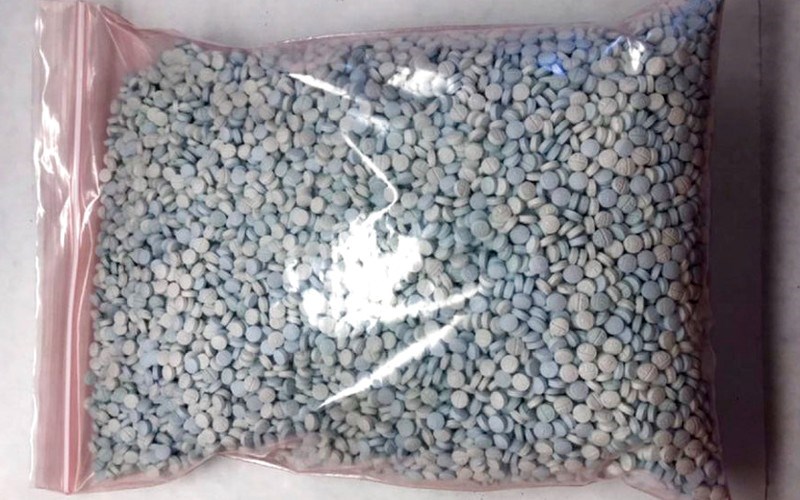An investigation has led to the largest fentanyl seizure in Multnomah County Sheriff’s Office history, according to the agency. While processing the evidence, roughly 58,000 fentanyl pills and 16 pounds of fentanyl powder were seized.
Two milligrams of fentanyl, equal to a few grains of table salt, is considered a lethal dose.
That record-breaking seizure didn’t occur at the southern border, such as south Texas or southern California, but in Oregon, says Derek Maltz, a former Drug Enforcement Agency official.
“What this [seizure in Oregon] helps show us is that the crisis is impacting all of America,” Maltz tells American Family News, because fentanyl can now be found "in every state throughout this country.”

The former head of the Special Operations Division at the DEA, Maltz warns fentanyl is responsible for "massive amounts" of poisonings across the U.S. With the addition of fentanyl appearing in millions of counterfeit pills, he describes it as “a tsunami of deadly drugs on the streets of America.”
Maltz finds himself looking for a solution alongside dozens upon dozens of families across the nation, many whom have lost a child or another close family member to fentanyl poisoning. Education is key, he says. Placing facts and figures on billboards, speaking at community events, and providing educational materials is part of a growing grassroots effort, he shares.
The DEA is doing a good job educating the public but he doesn't share that same view of the Biden administration and the White House. In light of that, the former DEA official has some ideas to help save lives.
“If social media influencers can be used to push out public campaign messages and target 18- to 25-year-old voters all over social media platforms,” he says, “the same social media influencers can easily put out short videos about deadly fentanyl that's killing kids all over America.”
Those kids are not watching mainstream media or cable news or congressional hearings, he explains, but they are glued to social media everyday. So that should be where celebrities and star athletes should be raising awareness of fentanyl and its deadly record.
“The reality is just the magnitude of deaths associated with fentanyl poisonings are something we've never seen before, and it's a poisoning of our younger generation,” he laments. “Where are the public service announcements from the White House?” he asks. “Where’s the Department of Education, providing materials to school and teaching kids [about deadly fentanyl]?”
‘Respond more aggressively’
Another issue is young people who are battling depressing and anxiety often turn to drugs to cope but the Mexican cartels are tainting the drug supply with fentanyl.
"So while kids may think they're taking something for relief," Maltz warns, "they’re actually taking deadly fentanyl and they're not waking up.”
The tragic stories and shattered lives are not forgotten by Maltz, who created a collage of names and faces so they will not be forgotten.
Regarding the cartels, Maltz considers them "narco-terrorists" who have killed more Americans than any terrorist group on record. He also faults Mexico and its government, which is controlled by the cartels.
 He contends that “if Al Qaeda would have been responsible for killing so many Americans while operating in Mexico, the U. S. government wouldn’t just sit back and do nothing.” The military would respond, he suspects. “We need to go after this threat in a way that has never been seen.”
He contends that “if Al Qaeda would have been responsible for killing so many Americans while operating in Mexico, the U. S. government wouldn’t just sit back and do nothing.” The military would respond, he suspects. “We need to go after this threat in a way that has never been seen.”
Additionally, he argues, “We have to put a lot more pressure on China for the exports of all the deadly substances and precursor chemicals that are going to Mexico.”
Regarding the Mexican cartels and the Chinese regime, he warns, “If they don't feel fear and they have no deterrent, they're going to continue to operate.”
For Maltz and the many families affected by fentanyl, progress in the fight against the deadly drug is not moving fast enough.
Nonetheless, Maltz says, he and other families in the fight are appreciative of Sen. Chuck Grassley (R-IA) and the Senate’s unanimous passing of a resolution designating August 21 as Fentanyl Prevention and Awareness Day.
“But more has to be done or our country will not stop losing its kids,” he insists.







